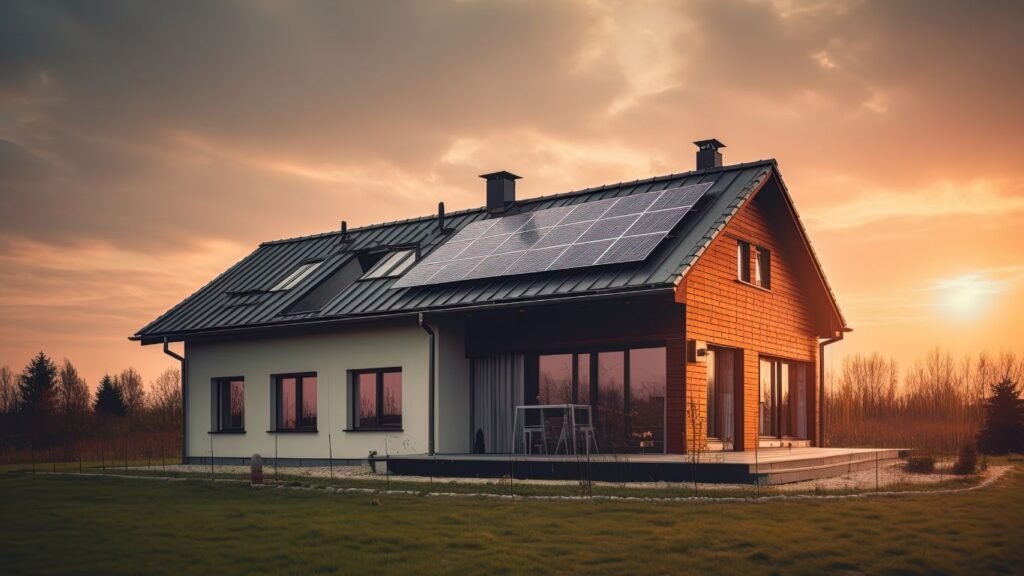As technology advances, our homes are becoming smarter and more efficient. At the heart of this transformation lies the electrical panel, an essential component that controls and distributes power throughout the house. Future homes will rely even more on advanced electrical panels to manage increasing power demands, integrate renewable energy sources, and ensure safety. This article explores the evolving role of electrical panels and what we can expect in the future.
Evolution of Electrical Panels
Electrical panels, also known as breaker boxes or distribution boards, have evolved significantly over the years. Traditionally, they served a straightforward purpose: to distribute electricity to different circuits in the home and protect those circuits from overloads through circuit breakers. However, with the advent of smart technology, electrical panels are becoming more sophisticated.
Key Features of Future Electrical Panels
Smart Integration:
Future electrical panels will be equipped with smart technology, allowing homeowners to monitor and control their power usage remotely via smartphones or computers. This integration will help optimize energy consumption, reduce costs, and enhance convenience.
Renewable Energy Management:
As more homes adopt solar panels and wind turbines, electrical panels will need to manage these renewable energy sources efficiently. Future panels will have built-in capabilities to handle energy storage systems like batteries, ensuring a seamless transition between grid power and renewable sources.
Enhanced Safety Features:
Safety will remain a top priority. Advanced electrical panels will include real-time monitoring systems to detect faults, overloads, or short circuits instantly, reducing the risk of electrical fires. They may also feature automatic shut-off mechanisms to prevent damage.
Energy Efficiency:
Future panels will play a crucial role in energy efficiency. They will provide detailed insights into power usage, helping homeowners identify and reduce energy waste. Some models might even offer suggestions for optimizing energy use based on real-time data.
Support for Electric Vehicles (EVs):
With the rise of electric vehicles, future homes will need to support EV charging stations. Electrical panels will be designed to handle the high power demands of EV chargers, ensuring safe and efficient charging.
Benefits of Advanced Electrical Panels
- Cost Savings: By optimizing energy use and integrating renewable sources, homeowners can significantly reduce their electricity bills.
- Convenience: Remote monitoring and control of electrical systems provide unparalleled convenience.
- Safety: Advanced safety features minimize the risk of electrical hazards, protecting both the home and its inhabitants.
- Environmental Impact: Efficient energy management and the integration of renewable sources contribute to a greener, more sustainable environment.
FAQs
Q1: What is an electrical panel?
An electrical panel, also known as a breaker box, is a component that distributes electricity to different circuits within a home and protects those circuits from overloads using circuit breakers.
Q2: How will future electrical panels be different from current ones?
Future electrical panels will integrate smart technology for remote monitoring and control, manage renewable energy sources, enhance safety features, improve energy efficiency, and support electric vehicle charging.
Q3: Why is smart integration important for electrical panels?
Smart integration allows homeowners to monitor and control their energy usage remotely, optimize energy consumption, and reduce costs.
Q4: How do advanced electrical panels enhance safety?
They include real-time monitoring systems to detect faults, overloads, or short circuits instantly and may feature automatic shut-off mechanisms to prevent damage.
Q5: Can future electrical panels help save on electricity bills?
Yes, by optimizing energy use and integrating renewable energy sources, future electrical panels can help homeowners reduce their electricity bills.
Q6: Will I need a new electrical panel to charge my electric vehicle?
Most likely, yes. Future electrical panels will be designed to handle the high power demands of EV chargers, ensuring safe and efficient charging.
Q7: How do electrical panels contribute to environmental sustainability?
By managing renewable energy sources and improving energy efficiency, electrical panels help reduce reliance on fossil fuels and lower carbon footprints.
Conclusion
As our homes become smarter and more energy-efficient, the role of electrical panels will continue to evolve. These advanced panels will not only distribute power but also enhance safety, integrate renewable energy, support electric vehicles, and provide homeowners with greater control over their energy use. Embracing these innovations will be essential for creating sustainable, future-ready homes.


